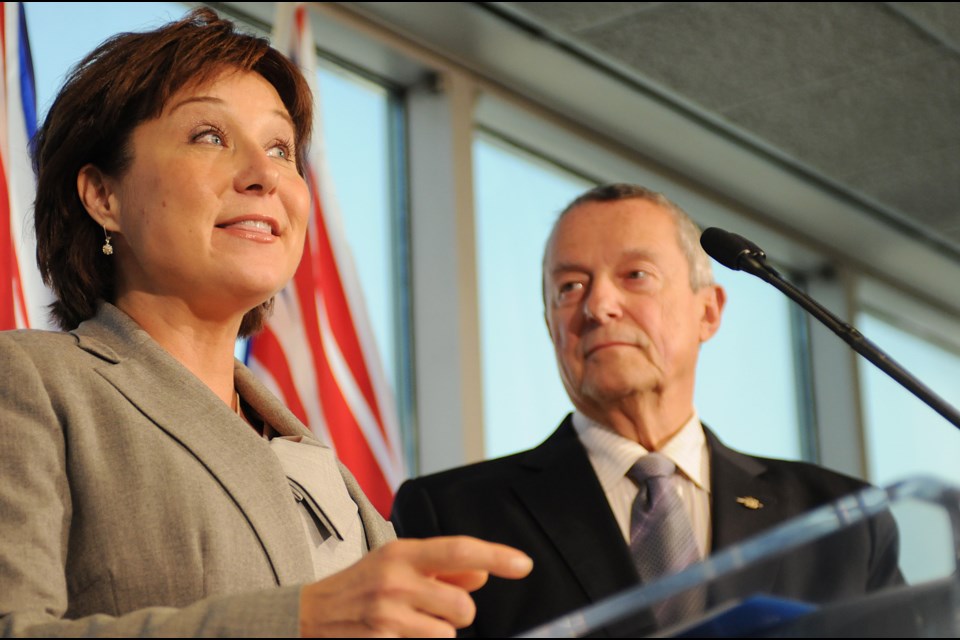There’ll be no strike for at least five years if the tentative agreement between teachers and the government is ratified.
A beaming Premier Christy Clark called the six-year agreement historic at an afternoon press conference Tuesday.
“We’ll have five years in which we can sit and talk about the things that really matter and that’s improving education for children in classrooms,” she said.
Mediator Vince Ready helped the B.C. Teachers’ Federation and the B.C. Public School Employers’ Association reach the tentative settlement in the early hours of Sept. 16.
Clark said she didn’t want to release details before trustees and teachers had seen the agreement.
But Clark did say the parties found a way to give teachers a fair raise, to provide more teaching support in classrooms without raising taxes, cutting services or increasing the provincial deficit.
Teachers are to vote on the agreement Thursday. Students from across the province could be in school as soon as Monday.
The Vancouver School Board has complained that costs of previous collective agreement settlements were downloaded to school districts.
“Clearly, we made the commitment at the beginning of this that the increases are within our budget parameters, so it is the provincial government that is funding this particular settlement,” Education Minister Peter Fassbender said at the press conference.
Although details haven’t been officially released, online reports from CKNW's Shane Woodford suggest:
- Teachers will receive a 7.25 per cent pay increase over six years.
- The BCTF will receive $108 million to address class size and composition grievances.
- The government will provide an education fund of $480 million over five years with $400 million for BCTF members and $80 million for CUPE school support workers.
- Elementary school teachers will be afforded an additional 10 minutes of preparation time per week at the start of the contract and another 10 minutes per week near the end.
- The government will boost the Learning Improvement Fund from the proposed $75 million a year to $85 million.
- The government removed the E80 proposal that said it would supersede “previous articles that addressed class size, composition and staffing levels.”
These details have yet to be confirmed by the Courier.
While Clark characterized the tentative agreement as the end to 30 years of dysfunction between the teachers’ union and government, reporters wanted to know how a decision made at the B.C. Court of Appeal could affect these ties. The Court of Appeal will deliberate on a case involving the two parties and class size and composition next month and any decision is expected to go to the Supreme Court of Canada.
“It’s possible to disagree on some things and continue to have a functional relationship,” Clark said.
Clark denied that concerns from the Chinese consulate about education for international students in B.C. spurred the government into these most recent negotiations.
When asked why more negotiating didn’t happen over the summer, Clark replied, “Negotiations happen as they happen. We can’t always predict the ebb and flow of how it’s going to work.”
Fassbender said once the agreement is ratified, the government would announce plans to address the loss of school time, particularly for Grade 11 and 12 students.
VSB chairperson Patti Bacchus told the Courier Tuesday morning the ministry hadn’t formally discussed teaching hours with the district, but Fassbender said the ministry had been making plans with superintendents and other administrators.
BCTF president Jim Iker is hosting his own press conference at 4:30 p.m. Check vancourier.com for details from that press conference.
twitter.com/Cheryl_Rossi



